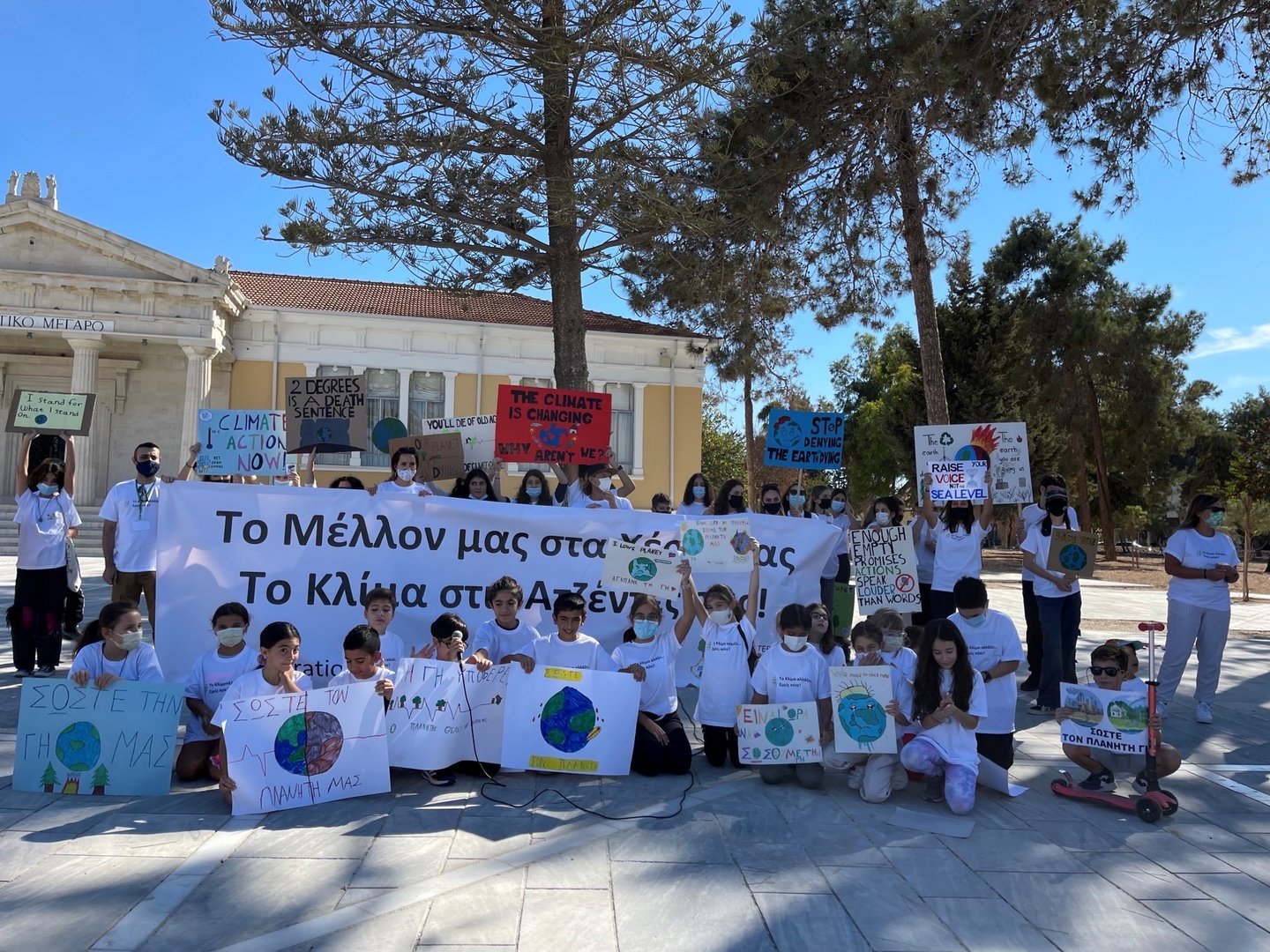Primary and secondary school students have called on politicians to take immediate climate action “to be able to dream for the future”.
The new movement Generation KlimACT has published a two-page joint statement signed by primary, gymnasium and high school students who over the last six months have been taking part in training session, headed by environmental NGO Terra Cypria, which have made them realise “the magnitude of the problem of climate change”.
Each student listed how the climate change is affecting society and provided suggestions as to how to address them, while calling on politicians and decision makers in Cyprus to act.
They spoke of increase in temperatures, which leads to higher energy bills in the summer, the rise in sea levels and the increase in forest fires and how these endanger flora and fauna.
“All these phenomena will have a terrible impact on our future,” said gymnasium student Krinoula Kokkinou.
Students proposed the reduction of fossil fuels and investments in renewable energy sources such as solar panels. They pushed for the use of public transportation or bicycles for a greener road network and stricter legislation to prevent fires. They also suggested the creation of protected marine areas for native sea species which are threatened by invasive species.
A primary school student, Marina Kyriakou highlighted the importance of personal responsibility.
“As active and responsible citizens, we can help tackle climate change through our own action. We could recycle and reuse products and save energy,” she said.
In their statement, students recognised that some of these measures have already been adopted “but we demand more action from politicians” and asked them to take youth into account in their decisions.
“I want to be able to dream about the future, to be able to build a career without fearing that the planet already has an expiration date,” wrote high school student Maria Chandriotou.
The movement said they will raise awareness on climate change through peaceful demonstrations and various articles.







Click here to change your cookie preferences